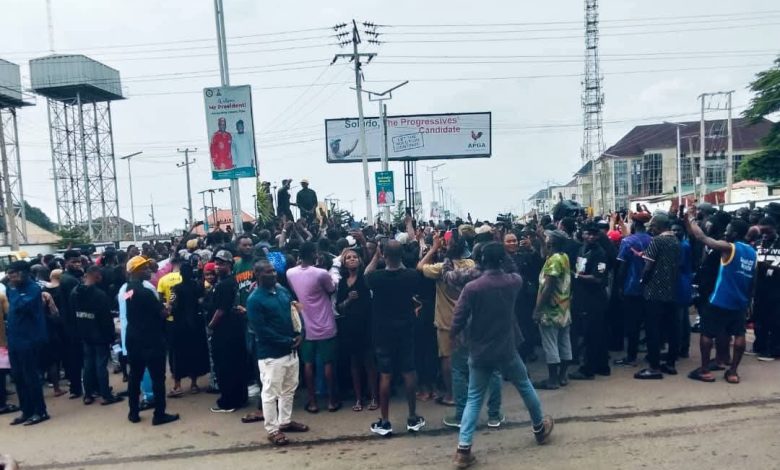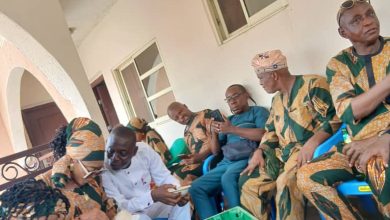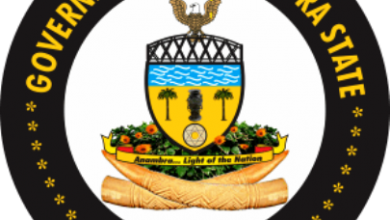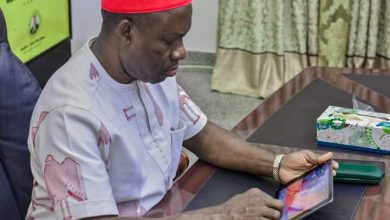
By Chuka Nnabuife | ANCISRO
Martins Vincent Otse, popularly known as Very Dark Man (VDM), has suddenly inserted himself into the centre of Anambra State’s political discourse, drawing questions about how and why an outsider from Edo State has become a talking point in the ongoing gubernatorial election campaign. On the streets, the confusion is even more palpable, as people wonder, in local parlance: “Who be this Very Dark wetin? Wetin be him own for Anambra matter?”
Mr Otse, a 31-year-old self-styled social media influencer, is known for his dramatic appearance—clad in coral beads, braided hair, and an aura reminiscent of a traditional Sango priest. His sudden arrival in Awka, the capital of Anambra State, on 6 August 2025, was neither subtle nor ordinary. He addressed a crowd of mostly young people, staging what many have come to see as a reckless political stunt rather than a sincere act of solidarity. In the middle of his speech, he pointed accusing fingers at Governor Chukwuma Charles Soludo, calling him a murderer and launching a barrage of unprintable insults and curses in a shocking display of disrespect.
Rather than inspire empathy or political awareness, VDM’s antics exposed a glaring lack of character and values. His crude performance appalled many in the audience, including those who had previously admired him online. He projected exactly the sort of attitude Anambra’s youth reject—rudeness, misinformation, and opportunism. While he spoke, several members of the crowd voiced their displeasure, calling out his falsehoods and distancing themselves from his accusations. Still, he pressed on, determined to provoke and accuse, even in the face of disapproval.
VDM claimed his reason for coming to Awka was to participate in a candlelight procession for the late Ifesinachi Onyekwere, popularly known as The Fish Magnet—a young entrepreneur who was abducted in Awka and later found dead near Onitsha, despite the payment of ransom. The gruesome murder of Ifesinachi had already triggered widespread grief across the state. He was well-known for his thriving fish barbecue business and admired for his entrepreneurial spirit. Interestingly, his mother serves as the Woman Leader of the All Progressives Grand Alliance (APGA) in Anambra South. Despite having no meaningful connection to the deceased, VDM tried to capitalise on the public sympathy surrounding the tragedy. According to sources, the only known interaction between the two men was a social media comment in which Ifesinachi once offered to send VDM some of his fish.
It quickly became evident, however, that VDM had other motives. Perhaps sensing that Ifesinachi’s story would not command the level of attention he desired, he shifted focus to Governor Soludo, launching wild, unfounded allegations of murder—repeating them multiple times in front of cameras. This strategy of escalation, though shocking, fits a now-familiar pattern. VDM thrives on controversy and spectacle. That he could level such a grave accusation at a sitting governor, particularly so close to an election, shows the depth of his recklessness and suggests he may not be acting alone. The questions then arise: who brought him to Anambra, and for what price?
Given his background in media and the law’s position on defamation and cybercrime, Mr Otse cannot feign ignorance about the consequences of his statements. He holds a degree in Business Administration from the University of Lagos and is no stranger to the legal and ethical boundaries of public speech. His accusations cannot be dismissed as mere flippancy; they were calculated and malicious.
VDM’s conduct in Awka is part of a broader trend in which he has built notoriety by attacking high-profile individuals. From public feuds with Bobrisky and gospel singer Mercy Chinwo, to calling out Don Jazzy and comedian Nedu Wazobia with baseless allegations, VDM has built a career out of conflict. He has also levelled unfounded claims against banks, celebrities, and religious leaders, many of which have resulted in backlash or legal action. In March and again in May 2025, he was arrested for alleged cyberbullying and cyberstalking. Despite his relatively recent graduation and lack of a known business portfolio, he lives a flamboyant lifestyle that raises further questions about his sources of income and the motives behind his public crusades.
His visit to Anambra, therefore, cannot be seen as an isolated or altruistic act. In every election cycle, Anambra becomes a magnet for political gamesmanship, and often, wealthy sponsors fund chaos to destabilise the process. VDM’s behaviour fits squarely into that script. Exploiting the death of a young entrepreneur to smear the state government, at a time of heightened political sensitivity, is deeply irresponsible and potentially dangerous. If he truly believes in the gravity of his accusations, let him provide proof. Otherwise, he owes the people of Anambra and the grieving family an apology.
What happened in Awka is a reminder that not all activism is rooted in justice or integrity. Some of it is driven by ego, ambition, and the lure of political money.



